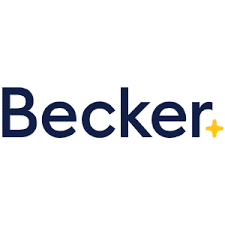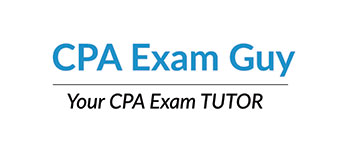
When you are deciding on an accounting certification, you would probably think that you have to choose between the Certified Public Accountant (CPA) and the Certified Financial Analyst (CFA®) credentials.
But there is a much wider range of options that are available.
Although the CPA and the CFA® are the most popular accounting certificates, there are many others that will help you to gain skills and expertise in specific areas. You may want to consider getting one of these if your objective is to specialize in a particular field.
Here are some of the alternatives that you have. Although this is not a comprehensive list, it covers most of the important certifications.
Certified Public Accountant (CPA)
If you have decided to take up a career in public accounting, this certification is a must-have. Passing the CPA exam provides a host of other benefits too. You can work in the areas of taxation, management accounting, and financial services as well.
To get the CPA license, you need to meet certain requirements. There are three Es to be fulfilled:
- Education
- Exam
- Experience
Each of the 55 jurisdictions that issue CPA licenses lays down its own rules.
Most of them stipulate that you should have completed 150 semester hours of education, which is the first E, to be qualified to take the CPA exam.
The second E refers to the Uniform CPA exam. This is common to all 55 jurisdictions.
The requirements for the third E, experience, can differ across jurisdictions. For most states, this means completing at least two years of public accounting work. But many states allow non-public accounting experience as well; it is even possible to meet this criterion by working in taxation or by teaching specific courses.
It’s a good idea to carefully study the rules that you need to comply with before you choose a CPA course and start studying for the CPA.

Chartered Financial Analyst (CFA®)
The CFA® credential is highly sought after and well-respected. It is a specialization in investment analysis, financial planning, and portfolio management skills.
To become a CFA® charterholder you need to pass three levels of exams. How difficult is this? Pass percentages are about 50%. In the June 2018 exam, 43% of the candidates passed Level 1, 45% passed Level II, and 56% made it through Level III. (Source: CFA® Institute)
In 2017, the pass percentages were similar. They stood at 43%, 47%, and 54% respectively for the three levels. (Source: CFA® Institute)
It takes over four years to become a CFA® charterholder. In addition to passing the exam, you need to complete four years of qualified work experience.
Remember, this is a specialized field of work; there are only 150,000 CFA® charterholders in the world. Compare this with the CPA certification. According to the National Association of State Boards of Accountancy (NASBA), the body that serves the 55 boards of accountancy that issue CPA licenses, there were 664,532 actively licensed CPAs in April 2016. (Source: NASBA)
So, if you want to specialize in investment analysis and subjects that are related to portfolio management, go for the CFA®. But if your goal is to acquire an accounting degree that will offer a wide range of career options, the CPA may be a better bet.
Learn More About The CPA Exam
- The Ultimate Guide To The Audit Exam
- CPA Salary Guide: How Much Can You Make?
- CPA Exam Sections & Testing Windows
- 43 FAQ's for CPA's
- Top International Destinations to Take the CPA Exam

Chartered Global Management Accountant (CGMA)
The CGMA certification is of recent origin. It was established in 2012 by the American Institute of Certified Public Accountants (AICPA), an organization that has CPAs as members, and the Chartered Institute of Management Accountants (CIMA).
As the name of the CGMA certification implies, the focus is on management accounting.
CGMA designation holders work as business strategists. They use their expertise to apply non-financial information as well as financial planning and analysis to improve business outcomes.
AICPA members are eligible to acquire the CGMA certification, requiring three years of specialized work experience. Additionally, they need to complete a computerized case study that tests their ability in management accounting. The CGMA is essentially an additional certification for CPAs working in business organizations and governments.

Certified Management Accountant (CMA)
The Institute of Management Accountants issues the CMA certification. To become a CMA, you need to hold a bachelor’s degree from an accredited college. You are also required to complete two continuous years of work in the field of management accounting or financial management.
There are two parts to the CMA exam. According to the Institute’s website, the pass percentage for part 1 is 40% while the part 2 percentage is higher at 50%. You have three years to pass both parts of the CMA exam.
What if you don’t complete the exam in three years?
If this happens, you lose your previous scores even if you had passed in those exams. You will have to re-register and start over again (see other updates and CMA exam changes here).
Many CPAs opt to get a CMA certification. Approximately, a third of active CMAs in the United States holds a CPA certification as well.
Compare the Best CMA Review Courses
Certified Fraud Examiner (CFE)
The Association of Certified Fraud Examiners conducts the CFE exam. Successful candidates are designated as anti-fraud professionals.
Preparing for the CFE exam involves studying the Fraud Examiners Manual, a 2,000-page guide that provides details about the techniques and procedures that fraud examiners follow in the course of their work. The exam that you are required to take focuses on four main areas:
- Fraud prevention and deterrence
- Financial transactions and fraud schemes
- Investigation
- Law
If you plan to take the CFE exam, you will need to submit details of your education and work experience as well as recommendations from three individuals with whom you have worked.
Get The Best Discounts On Your CPA Review Course!

Enjoy $1,141 Off Becker CPA Pro+

Enjoy $1,050 Off Gleim CPA Premium Pro Course

Certified Internal Auditor (CIA)
This is a very useful certification if you plan to make a career in internal auditing. To apply for this designation, you need to have the appropriate combination of education and work experience.
If you hold a Master’s degree, you would need a minimum of 12 months of relevant experience. Bachelor’s degree holders require 24 months of experience. If you do not hold any degree, you may still be eligible, but a minimum of 60 months of experience in the field of internal auditing is required.
The CIA exam consists of three parts:
- Essentials of Internal Auditing
- Practice of Internal Auditing
- Business Knowledge for Internal Auditing
A revised version of the exam will be implemented from January 2019. However, it will continue to have three parts.
The CIA exam isn’t easy to pass. Pass rates have hovered around 40% for the last four years.
Compare the Best CIA Review Courses

Enrolled Agent (EA)
An EA is an individual who has been certified by the Internal Revenue Service (IRS) of the United States to represent taxpayers. This designation is earned by passing a three-part IRS exam.
Candidates are expected to have an expert level of knowledge of both individual and business tax returns.
The exam that you are required to pass to get an EA is called the Special Enrollment Examination (SEE). It consists of three parts, each of which contains 100 questions:
- Part 1- Individuals
- Part 2 – Businesses
- Part 3 – Representation, Practices and Procedures
Passing the Special Enrollment Examination is not the only way to get an EA certification. A certain category of former IRS employees can automatically become EAs because of the specialized experience that they have gained over the years.
Even after you earn the EA certification, you are expected to update your knowledge of changes to the tax laws by completing 72 hours of continuing education programs every three years.
Compare the Best EA Review Courses

Certified Information Systems Auditor (CISA)
The CISA certification is ideal for those who are involved in auditing and monitoring information technology systems. To earn this certification you need to pass the CISA exam, but you will also require at least five years of relevant work experience.
After you are certified, you have to comply with continuing education requirements to maintain your certification. Individuals have to complete a minimum of 20 hours of continuing professional education annually and 120 hours every three years.
The CISA exam consists of 150 questions that are required to be answered over a four-hour period. Candidates are tested on their knowledge in five specific areas:
- Domain 1 – The Process of Auditing Information Systems
- Domain 2 – Governance and Management of IT
- Domain 3 – Information Systems Acquisition, Development and Implementation
- Domain 4 – Information Systems Operations, Maintenance And Service Management
- Domain 5 – Protection of Information Assets
Compare the Best CISA Review Courses

Which Certification Should You Choose?
In most instances, you can’t go wrong if you opt for a CPA. This certification is highly respected, and you will find employment opportunities in public accounting, international corporations, banks, and financial institutions. Practically every type of business organization employs CPAs which pays considerably more than a generic accountant’s salary.
However, if you plan to specialize in an area such as information systems, forensic accounting, or investment analysis, you may want to select a certification that will provide you with expertise in that particular domain. Before you start working towards a specific certification, do your homework well.
How many years will it take you and how much will it cost?
If you happen to be working, will you be able to devote the time that is required to pass the exam?
Will you be in a position to fulfill the work experience requirements?
Frame the questions that are relevant to you and think about your answers. This will help you to select a certification that matches your needs.


